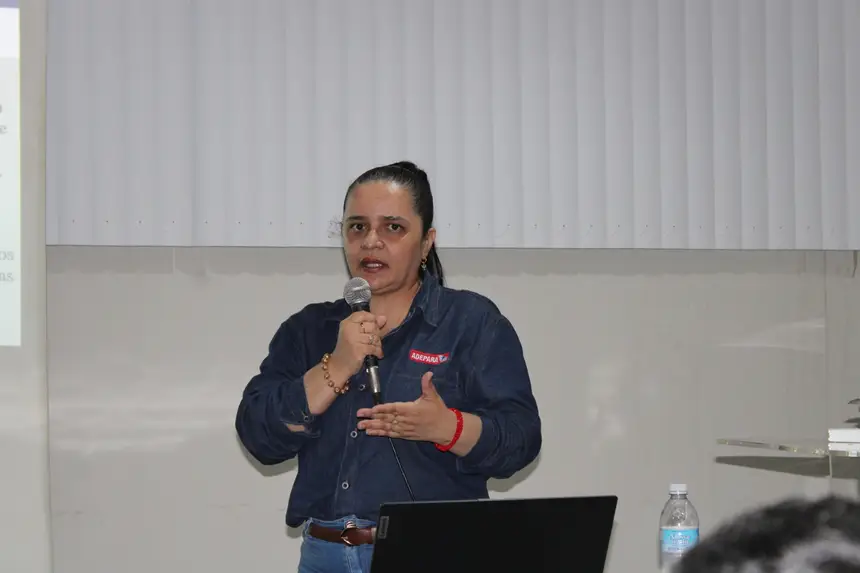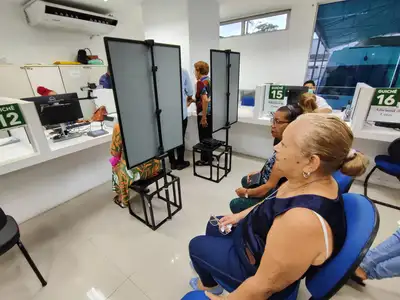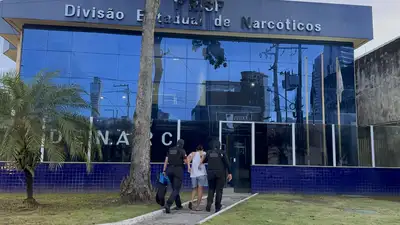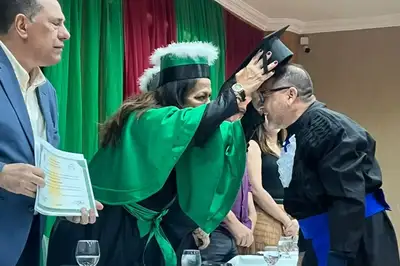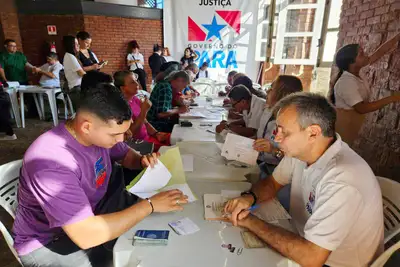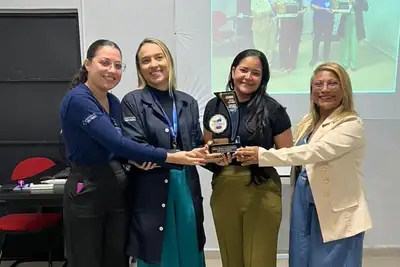In Santa Izabel, Adepará guides the poultry chain on avian flu prevention
Surveillance actions are frequently carried out in the State to prevent diseases in birds and maintain the health of production
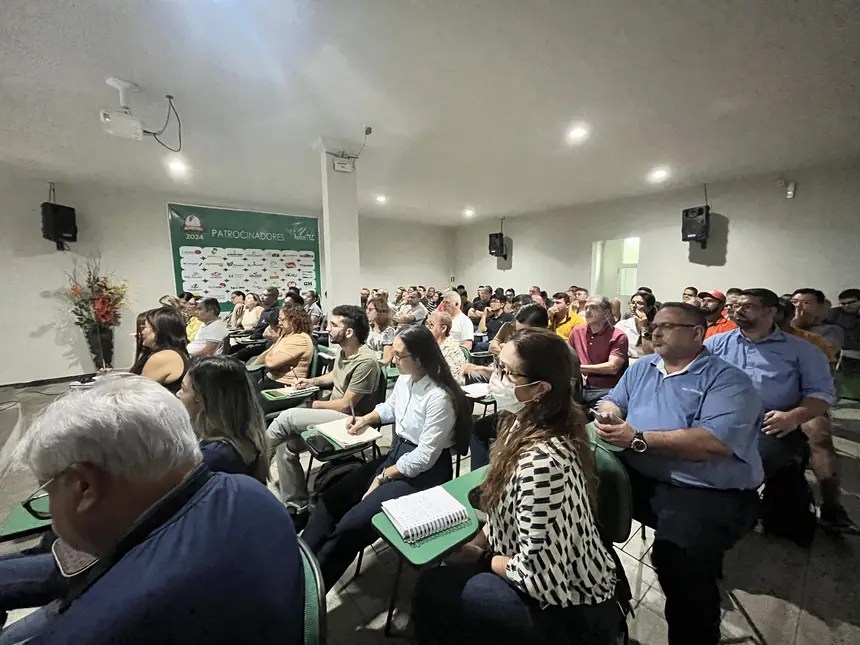
The Agricultural Defense Agency of Pará held a technical meeting with poultry producers on Tuesday, the 20th, at the headquarters of the Rural Producers Union of Santa Izabel do Pará. The objective was to reinforce the guidelines of the State Official Veterinary Service regarding biosecurity measures, the actions that the Agency has been executing to maintain the health of poultry flocks, and how to report a suspected disease to Adepará.
The meeting was attended by representatives from the Ministry of Agriculture and Livestock (Mapa), the Federation of Agriculture and Livestock of Pará (Faepa), the Poultry Association of Pará (Apav), as well as technical managers and employees of agricultural supply stores.
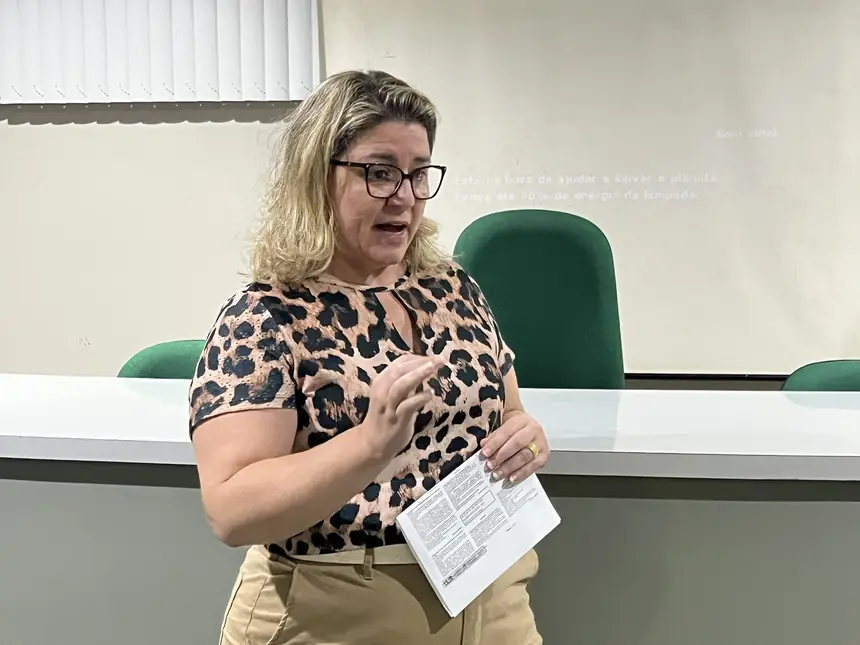
The manager of the state poultry health program, agricultural inspector Lettiere Lima, explained how the epidemiological investigation and the collection of biological material for laboratory analysis of bird diseases occur.
“Tests for avian influenza and Newcastle disease (viral disease) are conducted. All collected samples undergo this investigation, as only a positive result can confirm if it is a case of highly pathogenic avian influenza, which characterizes the outbreak,” said Lettiere Lima.
Notification is mandatory and can be made by the rural producer or by the veterinary service itself through e-Sisbravet.
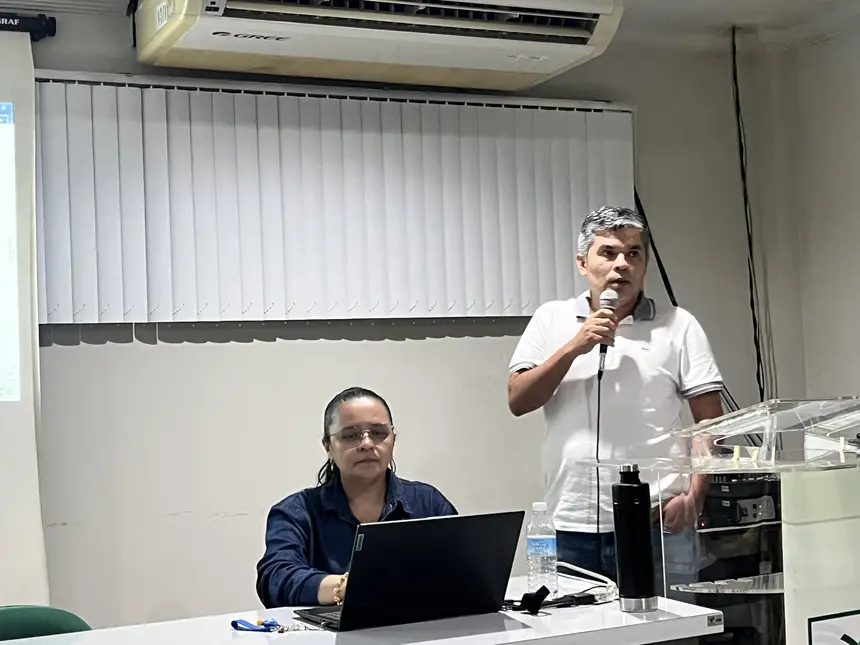
“The sooner Adepará reaches the properties, the more efficient the control will be. And the producer is our greatest ally,” said the veterinarian.
The director of animal defense and inspection, Graziela Oliveira, detailed the work being developed, resulting from the advance preparation of the technical team that was trained to act in sanitary emergencies.
Sanitary Control - Adepará conducts sanitary control of the poultry flock through surveillance actions in registered farms and also in properties that have subsistence poultry farming. This control is done by collecting biological material to verify the absence of the Avian Influenza virus.
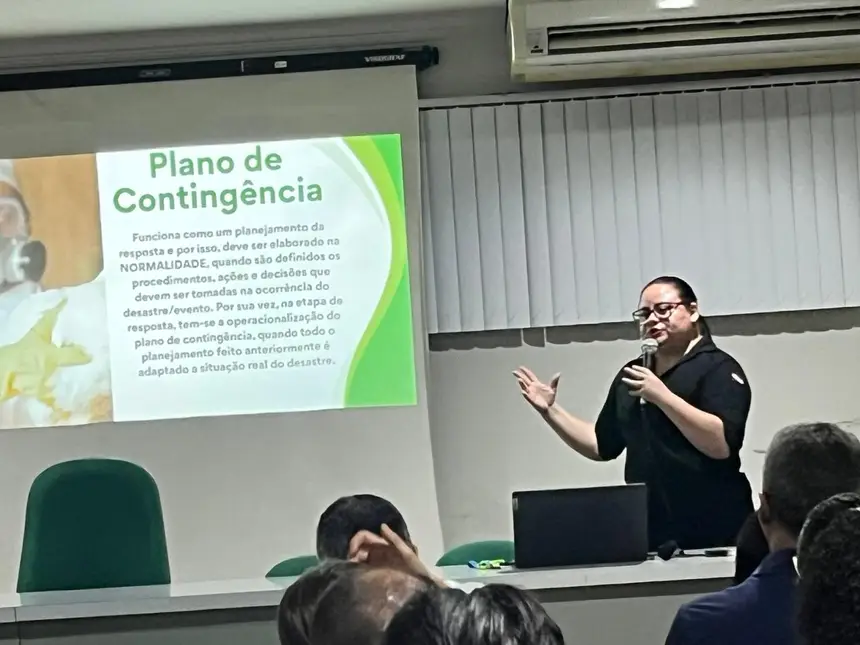
According to the Defense Agency, more than 3,000 surveillance activities have been carried out in the state. In 2025, there were 11 notifications of respiratory and nervous syndrome in birds, with 7 samples collected for examination that returned negative results and 4 discarded.
Additionally, Adepará inspects commercial farms and non-commercial rural properties, conducting routine surveillance on the properties and responding to notifications of suspected disease.
Currently, Pará has 267 commercial farms divided among 9 producers. There are also 9 hatcheries and 1 breeding farm.
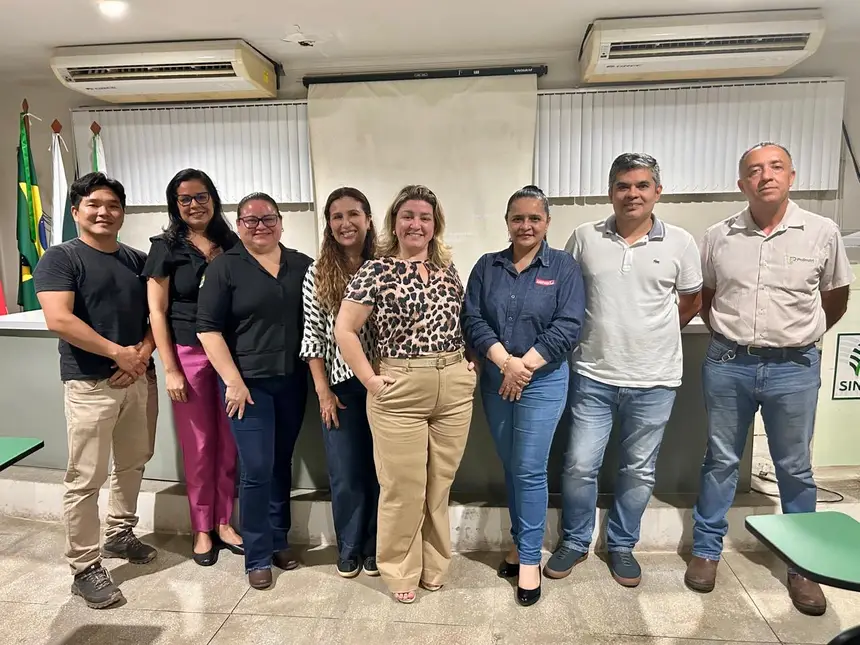
“Since 2023, we have been conducting epidemiological studies in the so-called component 3 that involves commercial farms. This survey was conducted throughout the state and placed Pará among the states that collected the most samples to verify the absence of the virus,” said the director.
Defense Actions - By June, the agency is expected to complete the sixth epidemiological surveillance study for avian influenza in the state, monitoring commercial farms and domestic poultry farming.
It also held 8 meetings of the inter-institutional committee for sanitary crisis management, composed of public agencies directly linked to the environment and public health, as well as representative entities of rural producers.
The broiler chicken producer in Santo Antônio do Tauá, Jone Yamaguchi, knows that the measures are essential to maintain the health of chicken production in the state.
“It is always very important for us to anticipate. With this, the State wins, agricultural defense wins, and poultry farming wins. We sell in Pará and Maranhão. Our weekly production is approximately 100,000 birds, and we follow all the protocols established by the Ministry of Agriculture there and monitored by ADEPARÁ,” he emphasized.
Pará is free from avian influenza, and maintaining this status requires constant prevention and control. According to the epidemiology manager of Adepará, Samyra Albuquerque, surveillance on properties is part of a routine procedure of the SVO.
"Responding to notifications of suspected diseases or conducting epidemiological surveillance aimed at monitoring the health of herds and flocks in rural establishments, whether commercial or subsistence, should not be seen as something exceptional; on the contrary, every day the Official Service is in the field carrying out prevention and control actions, and clinical and epidemiological investigation is part of the essence of our work. Pará is free from avian influenza, and we continue to work to maintain surveillance and controls within the environments where birds are housed," emphasized the manager.
SERVICE:
Notification of suspected diseases to Adepará can be made at the Agency's offices or by phone at 9392-2469 or email emergência.adepara@gmail.com
It is possible to register the notification directly in e-SISBRAVET (Ministry of Agriculture's platform for registering notifications).


